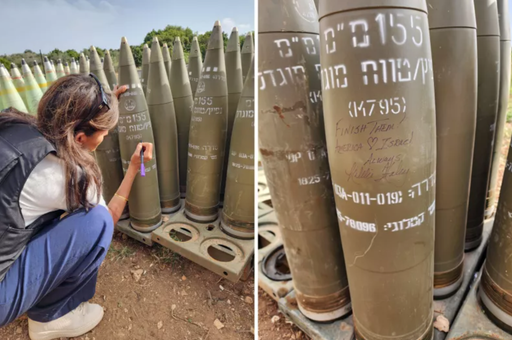As Gaza faces an unprecedented humanitarian catastrophe due to Israel's ongoing genocidal war and blockade, growing criticism has been directed at the multiple failed attempts made by the US to get aid into the besieged enclave.
Nearly 50 Palestinians were killed and over 200 wounded on Sunday when Israeli forces opened fire on civilians desperately seeking aid in al-Mawasi, west of Rafah.
Since the launch of the controversial Israeli-American backed Gaza Humanitarian Foundation (GHF) on May 27 — a mechanism that sidelines UN agencies — at least 52 have been killed and 340 wounded, according to Palestinian officials.
Many aid seekers have suffered gunshot wounds to the head, chest, and upper body, raising allegations of deliberate targeting.
Despite high-profile announcements and costly logistical initiatives, observers argue that Washington has done little to alleviate the suffering of Palestinians in Gaza.
"The US has continually failed to ensure that proper levels of aid reach Palestinians right from the start and even before Oct. 7 when Gaza was under blockade," Chris Doyle, director of the Council for Arab-British Understanding (Caabu), told Anadolu Agency.
"The very fact that the US had to resort to airdrops and that ridiculous pier is an indicator of the extreme lengths that they would go to avoid having to put pressure on Israel to allow aid in," he added.
Israel has kept Gaza’s crossings closed to food, medical supplies, and other humanitarian assistance since March 2, further worsening the already dire humanitarian situation, according to official, human rights, and international reports.

No meaningful relief to Palestinians
A closer look at US-led initiatives, including the construction of a floating pier and the hiring of military contractors, suggests that the efforts have largely failed to bring any meaningful relief to Palestinians on the ground.
On May 27, Israel launched a controversial aid distribution mechanism in Gaza, backed by the US, through an American group called the GHF.
The plan, viewed by critics as an attempt to circumvent UN-led humanitarian channels, has drawn sharp opposition from the international community and the UN.
However, the operation has since turned deadly for Palestinians.
The "inhumane" distribution process has drawn sharp criticism, with some likening the scenes to "concentration camps" — describing starving civilians waiting for hours behind metal fences in guarded compounds.
Critics have also voiced concerns that requiring Palestinians to travel long distances to distribution points in southern Gaza could contribute to forced displacement and endanger lives.

Just a day before the GHF launched operations, its executive director, Jake Wood, a US military veteran, resigned, stating that he could not reconcile the organisation's practices with "the humanitarian principles of humanity, neutrality, impartiality, and independence."
The GHF has also faced condemnation from local authorities. Gaza's government media office said the aid distribution plan in the "so-called buffer zone has failed disastrously."
US State Department spokesperson Tammy Bruce said last Tuesday that the GHF had delivered 462,000 meals to Palestinians via 8,000 food boxes. The statement, however, drew further skepticism over the efficacy and impartiality of the initiative.
The UN Office for the Coordination of Humanitarian Affairs (OCHA) warned that narratives focusing on GHF's activities risk diverting attention from the more urgent humanitarian needs in Gaza, including sustained aid access, safe delivery conditions, and the expedited approval of emergency supplies.
Analyst Doyle said the US-Israeli-designed plan violates core humanitarian principles and fails to deliver assistance at the necessary scale.
"So, rather than distributing aid on the basis of need, it’s done according to political ambitions of the Israeli government," he said.
International aid organisations have distanced themselves from the GHF.
Tommaso Della Longa, spokesperson for the International Federation of Red Cross and Red Crescent Societies (IFRC), told Anadolu Agency that his organisation is not involved in the US-Israeli aid mechanism, noting that it does not align with the IFRC's foundational principles of humanity, impartiality, neutrality, and independence.
"Our position is that the delivery of humanitarian assistance should be guided by humanitarian principles to ensure those most in need receive aid," he said.
Concerns have also been raised over the involvement of US private security contractors in the aid process. Armed personnel from two firms — Safe Reach Solutions (SRS) and UG Solutions — are reportedly securing GHF sites.
TRIAL International, a Swiss-based NGO, has called on Swiss authorities to investigate the Geneva-based GHF, citing concerns over the use of private military contractors and the potential risks posed to civilians in Gaza.
Commenting on the use of contractors, Longa said: "Introducing private contractors into humanitarian aid delivery risks politicising the response and could compromise the safety and perception of humanitarian workers on the ground."
Collapse of US floating pier
Another US initiative — a $230 million floating pier constructed off Gaza's coast in May — also went down as a complete failure.
Established by the US military and backed by the previous Biden administration, the pier operated for just around 20 days before rough seas damaged the structure, halting aid deliveries.
The US military announced in July that it had ended the temporary mission to install and operate the pier due to logistical and security challenges.
Salama Marouf, head of Gaza's media office, said last year the US-built pier "is useless" and had failed to make any meaningful impact.
According to Marouf, only the equivalent of 120 truckloads of aid passed through the pier to a territory of roughly 2 million people who have been languishing under Israel's blockade for nearly 20 months.
The Israeli army has pursued a genocide against Gaza since October 2023, killing nearly 65,000 Palestinians, most of them women and children, rejecting international demands for a ceasefire.
The dead include some 11,000 Palestinians feared buried under rubble of annihilated homes.
Experts, however, contend that the actual death toll significantly exceeds what the Gaza authorities have reported, estimating it could be around 200,000.















